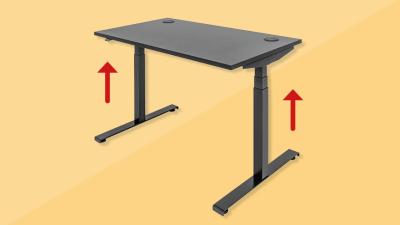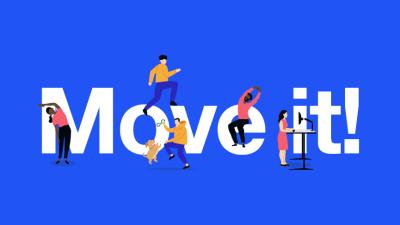Is it really possible to effectively type, read and concentrate while on your feet at a sit-stand desk?

Moving at work is healthy, but at some point we've all got to get into 'The Zone' in order to get anything done. 'The Zone' is that rare, magical place where background noise no longer penetrates your hardened core of concentration. Not even that colleague singing along to the radio can get past your Zone fortifications. In The Zone stuff gets done.
But how do you get into The Zone when you're on your feet?
Anyone considering a sit-stand desk might be nervous about whether it's actually possible to effectively work while standing up. Most of us are so used to typing, writing and reading in a sitting position from our office chairs that the idea of standing up to work can seem a little strange. Finally, some researchers have conducted a study to find out if body position really does affect work quality.

The study, which is called - 'Taking a stand: the effects of standing desks on task performance and engagement', was published this summer in the International Journal of Environmental Research and Public Health. The results might surprise you.
The results
Researchers recruited participants from a university and asked them to carry out four tests: two reading comprehension tests, and two creativity tests. For each test participants were assigned a body position randomly - either sitting, or standing at a desk. By the end, everyone had completed reading and creativity tasks in both positions. Participants believed they would be more creative while standing but thought they would perform better on tasks like reading and typing while sitting.
The results actually showed no difference in the number of minutes participants took to complete the reading tasks sitting or standing.

However, participants reported feeling more interested, enthusiastic and alert for the reading task while standing compared to sitting. They did report feeling more comfortable while sitting down. In conclusion, standing did not impair or enhance performance in either types of task - regardless of the participants' regular level of physical activity, BMI, or prior experience with sit-stand desks.
The researchers wrote: "Individuals may hold unfounded expectations about how standing desks will affect future performance on work-related tasks. An overall theme seems to be emerging, in which individuals’ (mostly negative) standing desk performance expectations are not supported by any strong empirical evidence."











